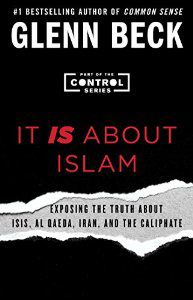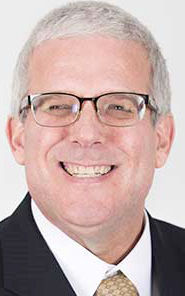Beck provides a sincere but flawed look at Islam
A friend gave me a book, “It’s About Islam,” by Glenn Beck. It underscores today’s debate over the rise of Islamic-based terrorism, particularly the Islamic State, which has used military power to conquer parts of Iraq and Syria, established a caliphate and committed mass executions of its enemies, those who embrace modernity.
Beck is a controversial figure, and this book is controversial, as it seems to take a clear side in the debate over what we should call what ISIS does: Is it terrorism, or is it Islamic terrorism? Democrats, notably President Obama and Democratic presidential front-runner Hillary Clinton, oppose assigning a religion to the terrorist acts. Republicans generally disagree. It’s part of our political dysfunction that we fight over how to describe the atrocities committed by ISIS.
Trying to find a review of this book by an author who doesn’t have an ax to grind is virtually impossible. There are a host of laudatory reviews from the right, and a screed against Beck from Salon, which used to be a reputable website but seems to have followed the money into leftist snipe sites. The best review I could find was from Religious Dispatches. It is — at times unfairly — harsh and snarky to Beck and the book’s readers, but at least addresses many of the claims in “It’s About Islam.” Beck is not an Islamophobe nor is he incorrect when he urges less political correctness and more resolve in dealing with terrorism. He is wrong about Islam, though.
Beck’s thesis is that Islam is a theology that encourages terrorism and that groups such as ISIS are merely following its teachings. He outlines a seven-step 20-year plan of “Jihad,” starting in 2000, that is supposed to culminate in a caliphate global victory in 2020. In the plan, mass attacks on western targets start in 2016. The book, which annoyingly lacks an index, is filled with scores of pages of radical rhetoric and accounts of atrocities by various groups, including ISIS and al-Qaida. Those are, to Beck’s credit, well sourced — although again, in the political world we live in, sources are trashed based on who’s citing them.
I don’t disagree that Beck’s sources said or did what is alleged. But is that Islam? I certainly wouldn’t want my religious beliefs wholly defined by the Old Testament, or even discourses by Mormon leaders 150-plus years ago.
As to terrorism, the book reiterates what everyone knows: ISIS is a threat on multiple levels. It earns roughly $50 million a day in oil proceeds. It controls land in Iraq and Syria and allegiance groups commit terror in other parts of the world. And despite the political correctness of Clinton and others, it is Islamic-based terrorism, just as the occasional attack on a U.S. abortion clinic is Christian-based terror. It makes no sense to ignore the origin of one’s rationale, even if it’s a warped and evil interpretation.
But parroting old Scripture and citing old interpretations does not define a faith for most of us. Beck’s selection of quotes from radical Islamic thinkers, as well as his examples of terrorism by ISIS and others, while numerous, are not enough to tag Islam itself as a terror enabler. Beck identifies Muslims as either for or against extremism. That’s too narrow; try to categorize Christians in that manner — it doesn’t work. Common sense dictates that the vast majority of Muslims are as appalled as anyone else by ISIS.
Recognizing that every Muslim in the U.S. does not sympathize or support the aims of ISIS seems a better strategy than trying to claim that the religion they worship is inherently violent, as Beck claims. In fact, the cruelty and nihilistic terror of ISIS, Boko Haram and imitators seems more a recent development than a resurrection of seventh-century tactics. The brand of Islam Beck describes, and appropriately condemns, is not the faith practiced by the overwhelming majority of Muslims.
There’s no doubt that ISIS wants to attack the United States and that it’s trying to groom individuals to launch attacks here. We have a major problem with terrorism and ISIS. Both the left and the right, Beck and President Obama, agree with that. The United States and other nations are fighting ISIS and looking for ways to keep preventing terrorist attacks. As I type these words Iraqi military personnel, with U.S. advisers, are trying to dislodge ISIS from Ramadi, a city near Baghdad. The military has launched so many bombs on Islamic radicals that there’s a shortage … of bombs.
It seems counterproductive to blame a religion for terrorism, particularly when we need the trust and support of its believers to help defeat ISIS.
Doug Gibson covers politics and government for the Standard-Examiner. Twitter: @PoliticalSurf.


